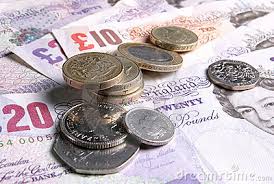The World War II was marked for the use of exceptional and highly destructive weapons in the history. But the Nazis had plans for one more weapon which would have ruined the British economy. Germans ran a secret operation known by a codename ‘Operation Bernhard’ which aimed at forging British Pound notes of different denominations and flooding the British economy with the fake notes. They forged around £134 million worth of notes. The plan was to destabilize the British economy by dropping forged notes from the aircraft. But the idea was dropped later due to inadequate resources.
In 1939 the British intelligence got wind of the secret plan. The Nazis placed some 100 agents who were ready to put the money in circulation in the United Kingdom. Nazis used the forged currency to finance its overseas operations and that’s how they put it into circulation. Because the British were aware of the plan, Nazis didn’t succeed in ruining the economy. Meanwhile, the British also had similar plans. But what would have happened if the plans were fully implemented? How is an economy affected by increase in currency notes?
The answer can be explained by ‘The Quantity theory of Money’. Quantity theory of money states that changes in the money supply leads to a proportionate change in the price level. In simple words, Quantity theory implies price level is affected by changes in the money supply. Inflation is the percentage change in the price level. Therefore, growth in the money supply or the quantity of money determines the rate of inflation. If money supply increases rapidly then the price level also increases rapidly thus triggering inflation. That is why Milton Friedman said- “Inflation is always and everywhere a monetary phenomenon”. If the Nazis would have succeeded in increasing the supply of pounds, it would have resulted in Hyperinflation in UK.
The major effects of high inflation are:
- Fall in the value of money: Because of the increase in inflation rate, the currency loses its value. With an increase in price level the amount that one could have purchased for £1 earlier is now less, implying a fall in the purchasing power. People will be unable to purchase even the basic necessities and thus it will result in a social crisis.
- Budget Deficits: As inflation rises, the real tax revenue falls. Real value is the difference between nominal value and inflation (r = i- π). Thus rapid inflation leads to larger budget deficits, which if financed by money creation further leads to hyperinflation. Fiscal policies such as increase in taxes and reduction in government spending are used. Often people unable to pay taxes end up indulging in tax distortions.
- Instability: High inflation rate causes currency rates to worsen. Businesses suffer because of increase in cost of imports. Cost of living increases, unemployment increases and thus gives rise to political instability. Political instability moves away prospective investors from the economy, resulting in another crisis.
In a country which is already in the grip of war, the increase in money supply would aggravate the above stated effects of high inflation. If these plans had implemented in the war, it would have ruined the economic, social and political balance of the countries. Economic weapons are very dangerous!!





30 Comments. Leave new
A refreshing view to the history and money itself
Thanks
Nice artical
Thank you
Well written…nice orientation!!!
Thanks mansi 🙂
A great walkthrough of history and how money used as a weapon for the first time to overcome and conquer the enemy.
Very well articulated, really appreciate the efforts and will surely follow up for future posts.
Thanks a lot 🙂
nice
Thanks
Well written post , very well co related history with economy similar issue is faced by Zimbabwe where they have now stopped their own currency and started using US dollars. Nice aproach to explain complex economic scenerio
Yes Zimbabwe is a victim of hyperinflation… Thanks for your comment..!!
Amazing work with the timeline, something new to read about.
Thank you divya
great work..
Thanks
Excellent work.. Good job..
Thanks
Well written^_^
Thanks!
Amazing article. Worth a read.
Thank you 🙂
very well Written Good Work 😀
🙂
well written article
thank you
a good introspection displayed
Nice one megha 🙂
Good work..!
Never knew about this…got a look of the past and how they planned to use money as a weapon!